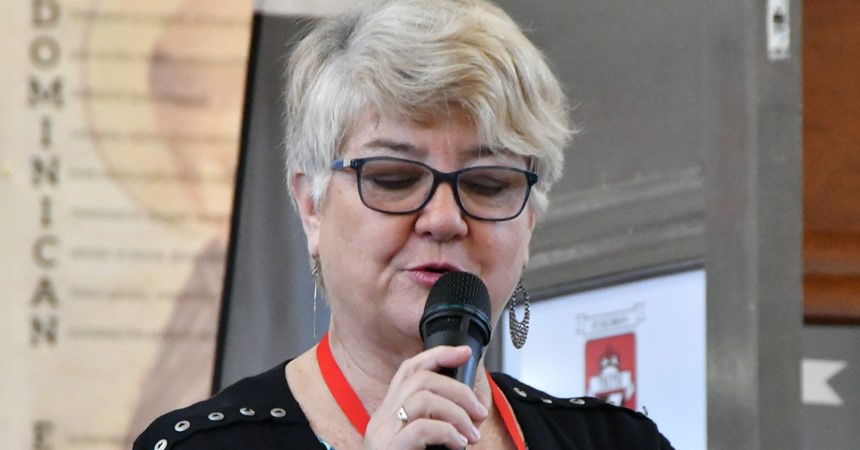Pope Francis has been busy this year making significant changes to two ministries and establishing a third. Like everything in the Church there is nothing simple about this. How we receive these changes and move forward requires great discernment lest we become even more unbalanced than we already are.
To spur your own thinking on this, I invite you to read the following article by Fr Andrew Doohan.
On The Professionalisation of Ministry
Go therefore and make disciples of all nations, baptizing them in the name of the Father and of the Son and of the Holy Spirit, and teaching them to obey everything that I have commanded you*. (Matthew 28:19-20a; NRSV)
* But only once you have been thoroughly vetted, educated and formed, and officially commissioned to do so by some liturgical ritual!
In the four and a half months of 2021, thanks to the direct intervention of Pope Francis, there has already been some significant changes in the understanding of officially recognised formal ministries in the life of the Catholic Church. In January 2021, thanks to his Apostolic Letter Spiritus Domini, the rather arbitrary restriction on the admittance of females to the formal ministries of Lector and Acolyte was removed through a change to Canon 230 §1 of the Church’s Code of Canon Law. The amended canon will now read:
Lay persons who possess the age and qualifications established by decree of the conference of bishops can be admitted on a stable basis through the prescribed liturgical rite to the ministries of lector and acolyte. Nevertheless, the conferral of these ministries does not grant them the right to obtain support or remuneration from the Church.
It is worth remembering, of course, that the ministry of Lector and Acolyte, as they are currently understood in the life of the Catholic Church, only dates back to Pope Paul VI’s Apostolic Letter Ministeria Quaedam (1972). This intervention eliminated the former ‘minor orders’ that were part of the preparation of a man for ordination as Priest and replaced them with the two ‘lay ministries’ of Lector and Acolyte. Admittedly, Ministeria Quaedam retained a focus on these two lay ministries as a necessary part of the preparation for Holy Orders, though they could also be conferred on other suitable male (non-ordained) members of the Church.
Setting aside for the moment the nature of these two ministries, there was very little in the way of controversy in the broader Church setting about Pope Francis’ changes. Why? Simply because it was already happening. Men and women were already fulfilling the larger part of the two ministries of Lector and Acolyte, even if they were not officially referred to as such, and there was no formal ‘conferral’ of the ministry.
It will be up to conferences of bishops to determine how best to give expression to the fullness of the changes within their own territories, yet I suspect – and fear – that the implementation may only be at a cosmetic level rather than a delving into, and an exploration of, the fullness of the two ministries of Lector and Acolyte.
More recently, Pope Francis has established a new ministry. In the opening days of May 2021, through his Apostolic Letter Antiquum Ministerium, Pope Francis has established the formal and official ministry of Catechist in the life of the Catholic Church. It has been established as a definitively ‘lay ministry’, one to which “those lay men and women who feel called by virtue of their baptism to cooperate in the work of catechesis” (n.5) may be admitted on a stable basis as a recognition of some “definite vocational aspect” (n.8).
Again, the reality of the new ministry of Catechist will only come to full expression once conferences of bishops take up Pope Francis’ invitation to determine “the necessary process of formation and the normative criteria for admission to this ministry” (n.9). And the question of the practical expression of the new ministry and what it might look like is still some way off.
And so I finally come to the point of this column, and the reason why I commenced by quoting what is often referred to as the ‘Great Commission’ of Jesus to the disciples.
At the heart of the ‘Great Commission’, the task of making disciples, is not a specialised subset of the existing disciples. The commission, the task, is given to all disciples, regardless of who they are, because they have first heard the Word of God and been called to the continuing task of personal and corporate conversion of heart and life. It is not something that belongs to only some in the Church, therefore, but something that belongs to all in the Church, and does so from the moment of baptism. It is baptism not the conferral of some ministry that prompts the Christian believer to participate in the continuing mission of proclaiming the Good News of Jesus Christ.
Or at least it should be.
One of the concerns I have already heard expressed in several places about the advent of the new ministry of Catechist, and which I suspect extends to the broader availability of the ministry of Lector and Acolyte, is about the ‘clericalisation’ of the laity of the Church.
My concern is that the conferring of these ministries on certain members of the Church – after they have been selected, vetted, educated, and formed – will give permission for other members of the Church, those on whom the ministries are not conferred, to simply not be involved in the continuing mission of the Church.
In other words, the professionalisation and clericalisation of ministry will permit the baptised members of the Church, those who have been anointed as ‘priest, prophet and king’ (see, for example, Rite of Baptism of Children, n.62), to abrogate the missional responsibility that is theirs by baptism. Mission and ministry will become the task and responsibility of a ‘special class’ within the Church, rather than the task and responsibility of the whole Church.
Now granted, individual members of the Church will exercise their ‘priestly, prophetic and kingly’ responsibility in a variety of ways. Some will be called to do so on a full-time basis either through the reception of Holy Orders or the conferral of a ‘lay ministry’. There will be others who will serve the mission of the Church in other ways, such as full time employment, that is not connected with Holy Orders or formal ‘lay ministry’. Yet the responsibility for mission is not, and cannot be, limited to those who have received Holy Orders, been instituted into a formal ‘lay ministry’, or been employed by the Church in some specific role.
The advent of Pope Francis’ changes to the availability and breadth of formal ‘lay ministries’ is certainly welcome. However they suffer, I believe, because they are not firmly established first and foremost in a well-developed understanding or theology of the priesthood of all believers. As such there is a distinct risk to be faced by the Church in light of these changes, a risk that might further entrench a passivity in the members of the Church when it comes to responsibility for, and involvement in, the mission of the Church to proclaim the Good News of Jesus Christ into the world.
It is to be hoped that conferences of bishops will be attentive to these risks as they examine how best to make these new ministries a reality in the life of the Church. It is also to be hoped that conferences of bishops will be attentive to the risks of simply innovating these new ministerial opportunities without placing them in the context of mission belonging to the whole Church.
Thanks to Andrew for sharing this article from his blog.
You might to invite others into reflection and conversation about these new ministry developments as they relate to the life, liturgy and mission of the Church.
Acknowledgements
Image: © Diocese of Maitland-Newcastle. All rights reserved

